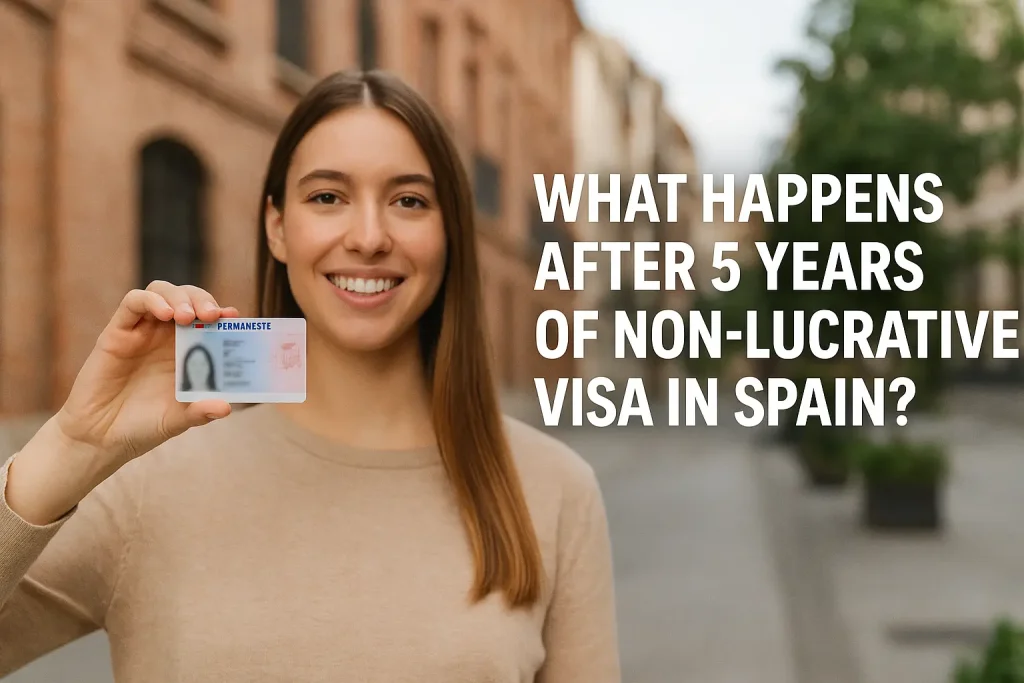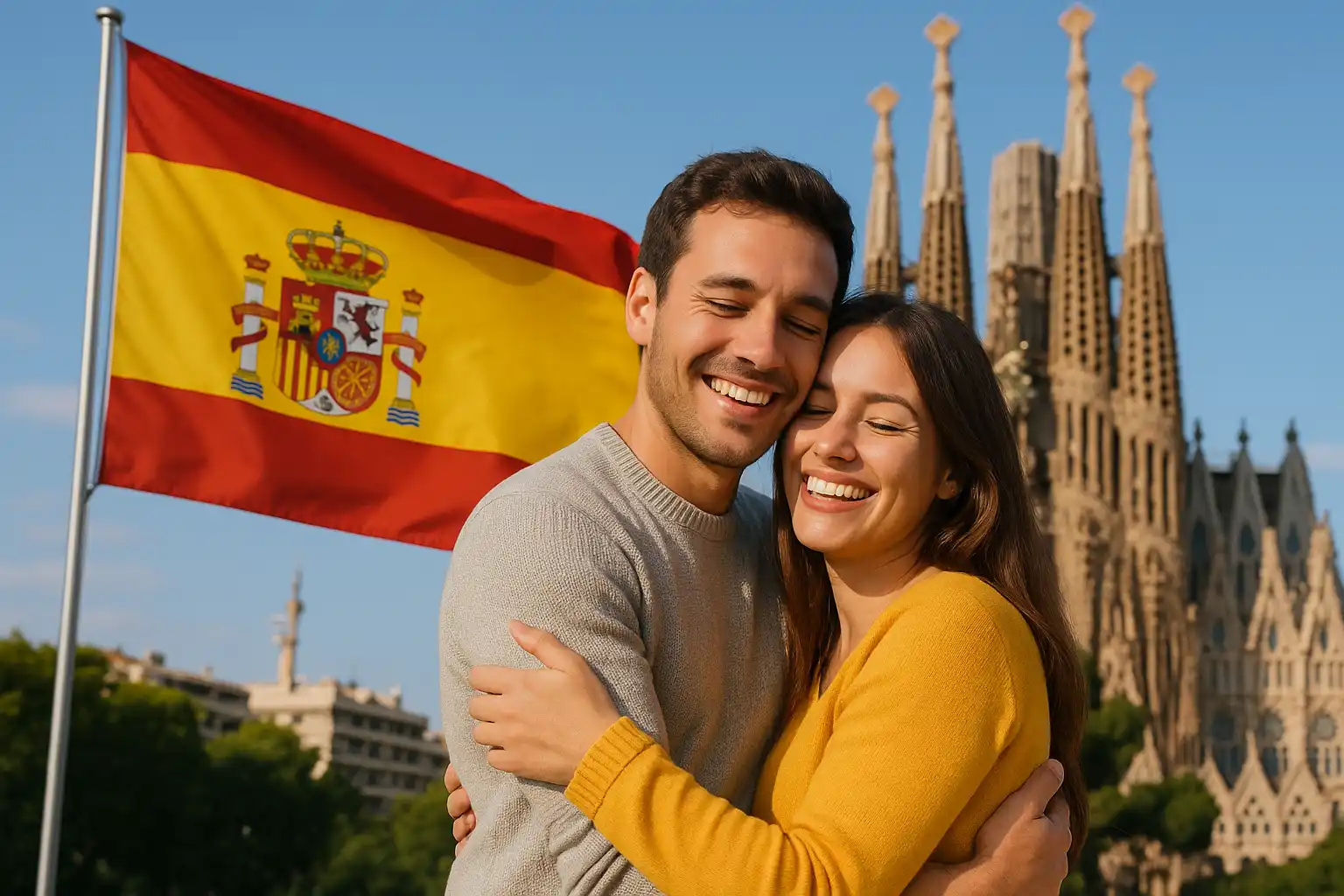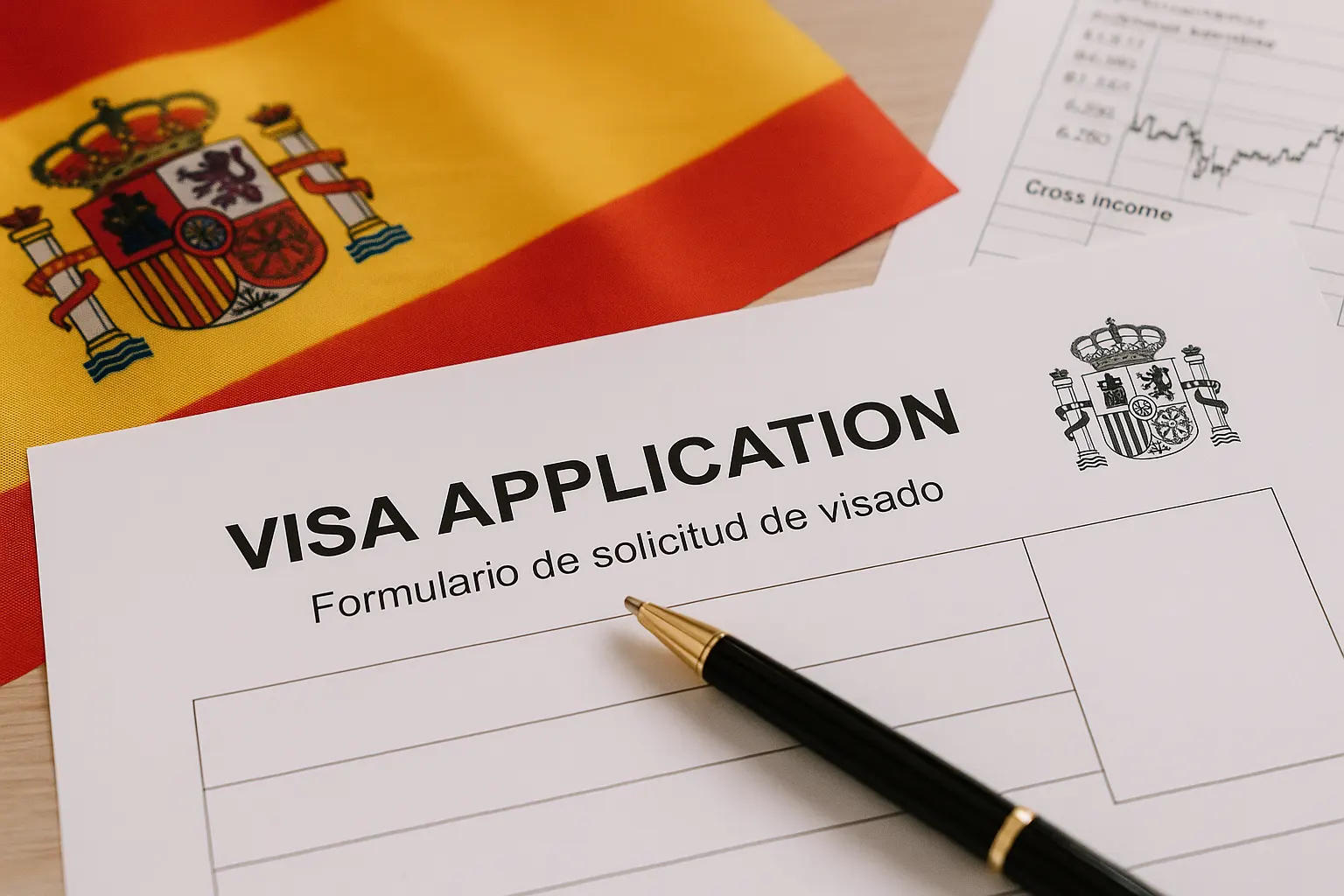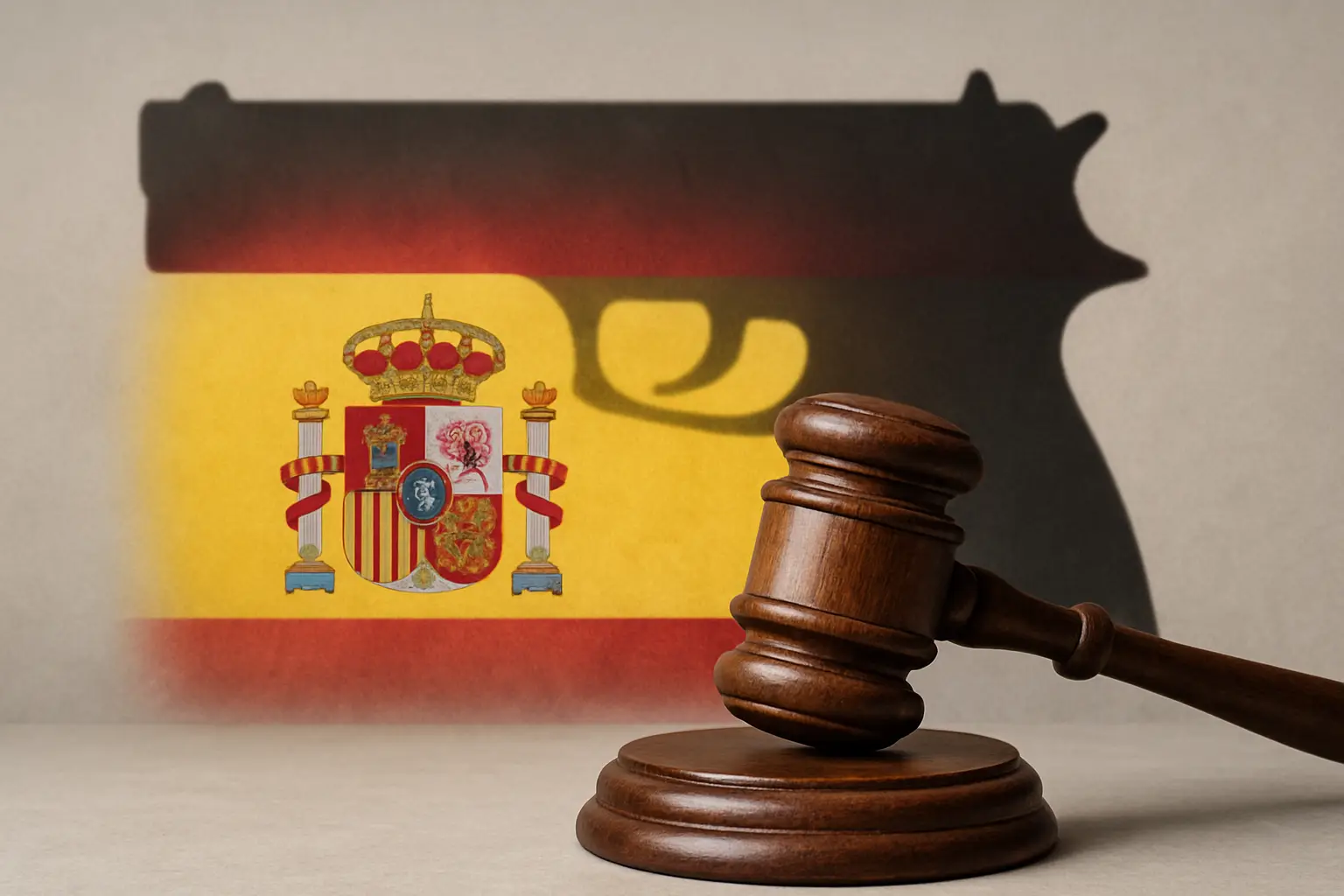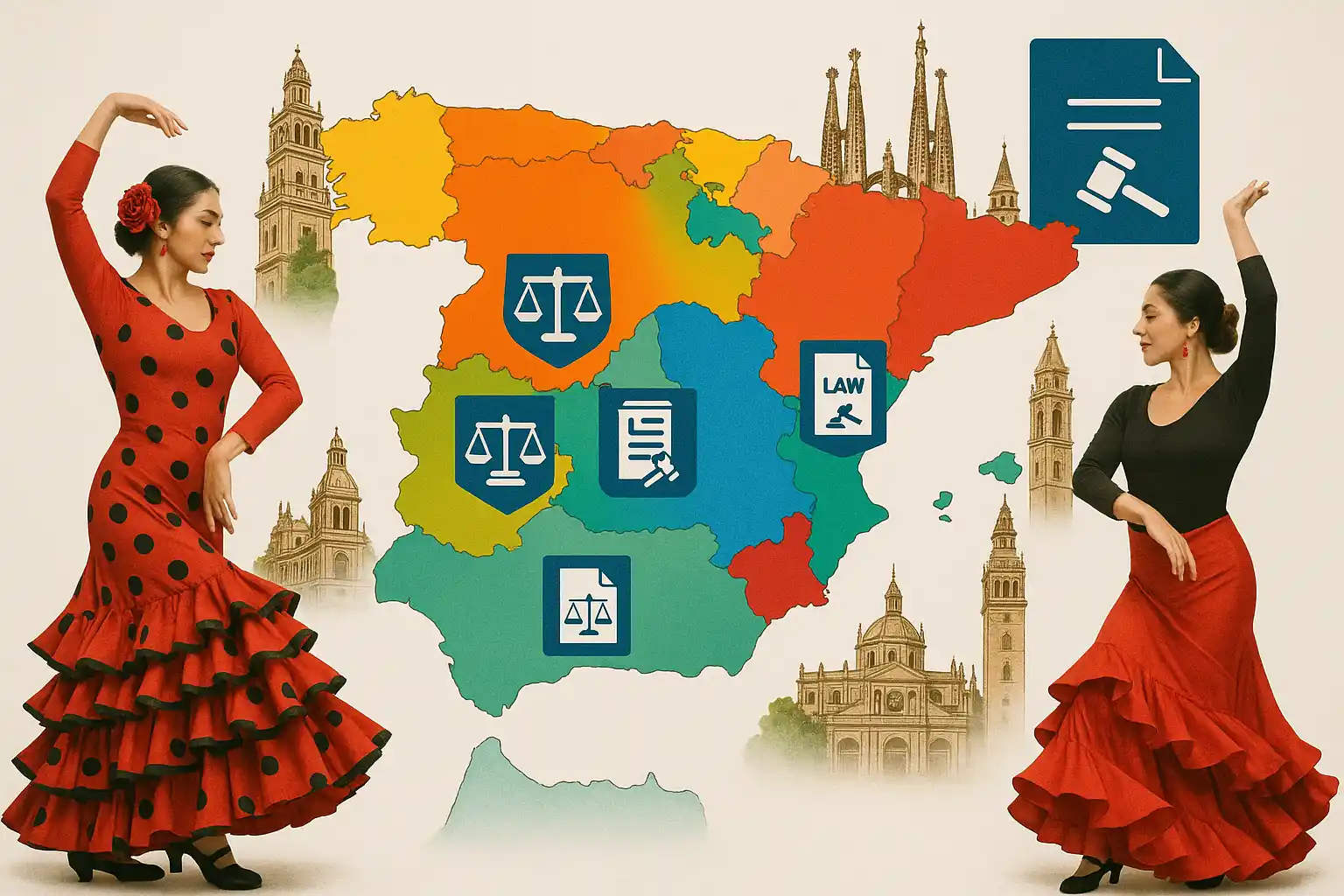The Spain Non-Lucrative Visa (NLV) is a residency permit for non-working individuals who wish to reside in Spain for an extended period without engaging in any professional activity.
It allows individuals to live in Spain for non-economic reasons such as retirement, family reunion, or personal projects. The visa offers a pathway to experience Spanish culture, lifestyle, and explore the country without the need to work.
Knowing the implications after five years is crucial for long-term planning and compliance with Spanish immigration laws. It enables individuals to prepare for potential transitions to permanent residency or citizenship.
To qualify for the NLV, applicants must demonstrate stable financial means to support themselves during their stay, have valid health insurance coverage, and meet specific requirements set by Spanish authorities. For UK nationals specifically, there are certain costs and requirements that need to be considered.
This section sets the stage for delving deeper into the journey of individuals holding the Non-Lucrative Visa in Spain, highlighting key aspects and considerations for a well-informed decision-making process. Additionally, it’s essential to understand tax obligations associated with this visa, especially for retirees. Furthermore, those planning on selling property or assets should also familiarize themselves with capital gains tax regulations in Spain.
Initial Validity and Renewal Process of the Non-Lucrative Visa
The initial validity of the Spain Non-Lucrative Visa is set at one year. Upon entering Spain, visa holders must apply for a residence card (TIE), confirming their legal residency status. After this first year, the visa is subject to renewal.
Renewals are granted for two-year periods, contingent on meeting specific requirements. The applicant must demonstrate continuous residence in Spain, maintain sufficient financial means, and hold valid health insurance coverage throughout the renewal period. Absences exceeding allowable limits or failure to comply with these conditions may result in denial of renewal.
Procedural steps for renewal include:
- Submitting a renewal application at the local immigration office (Oficina de Extranjería) within 60 days before the current residence permit expires.
- Presenting updated documentation proving financial solvency, health insurance, and proof of residence.
- Providing a valid passport and biometric data as part of identity verification.
- Paying the corresponding fees linked to the renewal process.
Documentation must be accurate and complete to avoid processing delays or rejection. Renewal applications can also be initiated through Spanish consulates abroad if applicants prefer to complete the process outside Spain.
Maintaining awareness of deadlines and procedural requirements ensures uninterrupted legal residence under the Non-Lucrative Visa scheme.
Residency Requirements During the 5-Year Period on a Non-Lucrative Visa in Spain
Maintaining legal residence on a Non-Lucrative Visa requires careful attention to continuous residence rules. Visa holders must not exceed:
- Six months absence per calendar year
- Ten months total absence over the entire five-year period
These limits ensure the visa holder’s residency status remains valid and counts toward permanent residency eligibility.
Applicants must demonstrate ongoing possession of:
- Sufficient financial resources to support themselves without employment
- Comprehensive private health insurance covering all medical needs in Spain
Failure to meet these conditions risks interruptions in legal stay, which can affect the ability to apply for permanent residency after five years.
What happens after 5 years of non-lucrative visa in Spain depends largely on compliance with these residency and financial requirements.
Rights and Limitations While Holding the Non-Lucrative Visa in Spain
Restrictions on working or generating income in Spain under NLV status are stringent. The Non-Lucrative Visa (NLV) strictly prohibits any lucrative activities or employment within Spain while holding this visa. Individuals are solely allowed to engage in activities that do not generate income, such as volunteering, studying, or investing in Spain.
Living conditions under the NLV require the visa holders to maintain their financial self-sufficiency without relying on Spanish public funds for support. For a detailed understanding of the income requirements necessary for obtaining this visa, refer to the 2025 Income Requirements Guide.
Permanent Residency After 5 Years on a Non-Lucrative Visa in Spain
If you have been living in Spain on a Non-Lucrative Visa (NLV) for five years and wish to make your stay more permanent, you may be eligible to apply for permanent residency. However, there are specific requirements you must meet to qualify for this status.
Criteria for Applying
To apply for permanent residency in Spain after five years on an NLV, you need to fulfill the following criteria:
- Continuous Legal Residence: You must have maintained uninterrupted legal residence in Spain throughout the five-year period.
- Clean Criminal Record Checks: You will be required to provide criminal record checks from both Spain and your home country to demonstrate good conduct during your stay.
- Compliance with Immigration Regulations: It is essential to show that you have adhered to all immigration rules and regulations while residing in Spain.
The Application Process
The process of obtaining permanent residency involves submitting an application for a permanent residence permit in Spain. This permit signifies a transition from temporary NLV status to long-term residency in the country.
Steps Involved in the Application Process:
- Gather all necessary documents, including proof of continuous residence and clean criminal record checks.
- Complete the application form for a permanent residence permit.
- Submit your application along with the required documents to the relevant immigration authorities in Spain.
- Attend any scheduled interviews or appointments as part of the application process.
Importance of Meeting Requirements
Meeting these requirements is crucial for individuals seeking to establish a more permanent status in Spain beyond the initial Non-Lucrative Visa. By demonstrating your commitment to legally residing in Spain and complying with immigration regulations, you increase your chances of obtaining permanent residency.
By fulfilling these criteria and following the application process diligently, individuals can pave the way towards attaining permanent residency in Spain after completing five years on a Non-Lucrative Visa.
Documentation and Application Process for Permanent Residency in Spain
Essential documents needed for permanent residency application include:
- Proof of Financial Means: Evidence showing you can support yourself financially without relying on public funds.
- Health Insurance Certificates: Documentation proving you have comprehensive health coverage in Spain.
The submission process involves:
- Document Submission: Compile and submit all required documents to the immigration authorities.
- Biometric Data Collection: Appointment for fingerprinting and photo identification.
- Possible Interviews: Depending on individual cases, applicants may need to attend interviews at the immigration offices.
Ensuring all necessary paperwork is accurately completed and submitted on time is crucial for a successful permanent residency application in Spain.
Benefits of Obtaining Permanent Residency in Spain After 5 Years on a Non-Lucrative Visa
Securing permanent residency in Spain after five years on a non-lucrative visa grants significant advantages, most notably the right to work legally without restrictions. This status removes the limitations imposed by the initial visa that prohibits employment or income generation within Spain.
Key benefits include:
- Work permit freedom: Holders can accept employment or start a business without requiring additional authorization.
- Residence card validity: Permanent residence permits are typically valid for five years and renewable indefinitely, unlike the limited initial NLV which requires periodic renewal.
- Enhanced stability: Permanent residency ensures a more secure legal status, facilitating access to social services and other benefits similar to those of Spanish nationals.
This status marks a crucial shift from temporary permission towards long-term integration in Spain’s social and economic life.
Transition from Permanent Residency to Spanish Citizenship
After ten years of legal residence in Spain with NLV status, you can apply for Spanish citizenship.
Requirements for Spanish Citizenship
In addition to the ten-year residency requirement, there are a few other things you need to do:
- Language Proficiency: You must show that you can speak Spanish well. This usually means passing a language test.
- Cultural Integration: You need to prove that you understand and are part of Spanish culture. This often involves passing a test about Spain’s history and society.
Meeting these requirements will help you on your path to becoming a Spanish citizen.
Role of Digital Immigration Services in Managing Your Non-Lucrative Visa Application
The advantages of using digital platforms such as NIM Immigration Lawyers for streamlined applications and consultations remotely are significant. These digital services not only simplify document submission and follow-ups without in-person visits, but they also provide a wealth of information.
For instance, if you’re unsure whether to apply for a Digital Nomad Visa or a Non-Lucrative Visa in Spain, digital platforms can guide you through the process, helping you find the best option for your remote work needs.
Common Challenges Faced During the 5-Year Period on a Non-Lucrative Visa in Spain, And How to Overcome Them
During the 5-year period on a non-lucrative visa in Spain, applicants may encounter several challenges. Here are some common obstacles faced by applicants:
- Document delays: This can happen if there are issues with obtaining necessary documents or if there are delays in processing applications.
- Failure to meet financial thresholds: It’s crucial to ensure that you meet the financial requirements set by the Spanish authorities. If your financial situation changes during the visa period, it could impact your visa status.
To overcome these challenges and ensure compliance with all requirements, consider the following tips:
- Stay organized: Keep track of all your documents and make sure they are submitted on time. Create a checklist of requirements to ensure nothing is missed.
- Seek professional assistance: If you’re facing difficulties with your application or have specific questions, it’s advisable to consult an immigration lawyer or expert who can provide guidance tailored to your situation.
- Maintain financial stability: Regularly review your finances and make necessary adjustments to meet the financial thresholds. This may involve seeking additional sources of income or making investments that align with the requirements.
By being proactive and addressing these challenges head-on, you can increase your chances of successfully navigating the 5-year period on a non-lucrative visa in Spain.
For more information on avoiding visa denial or revocation, including understanding common pitfalls and improving your application success, visit our website.
Conclusion
Planning ahead is essential for maximizing the benefits of Spain’s non-lucrative visa and ensuring a successful transition to permanent residency and eventually Spanish citizenship.
Understanding what happens after 5 years of holding a non-lucrative visa in Spain empowers applicants to navigate this process smoothly.
Key considerations include:
- Early preparation for permanent residency or citizenship applications
- Maintaining compliance with residency requirements and documentation
- Seeking professional legal advice to navigate the complexities of Spanish immigration law
- Leveraging digital immigration services to streamline application processes and communication
By strictly adhering to the rules, applicants can avoid delays, refusals, or revocations of their visa status. Expert guidance will provide clarity on eligibility criteria, procedural steps, and required documentation, reducing uncertainty during critical transitions.
Taking a proactive approach will turn long-term stay aspirations into actual legal status and rights within Spain.

